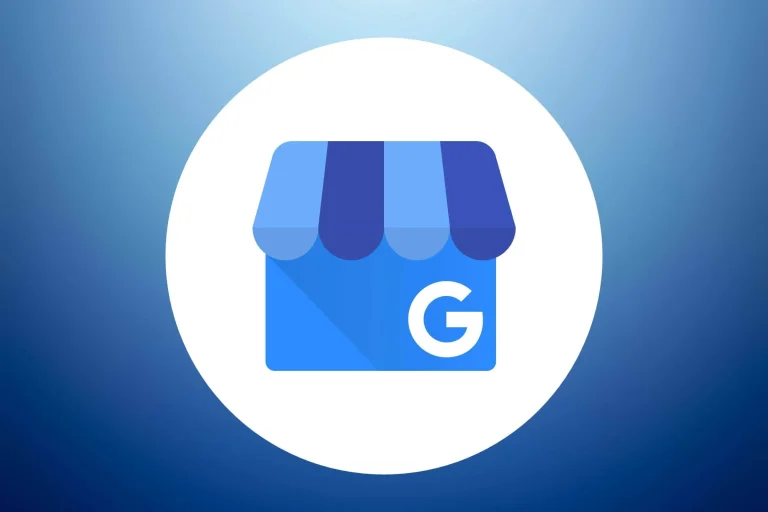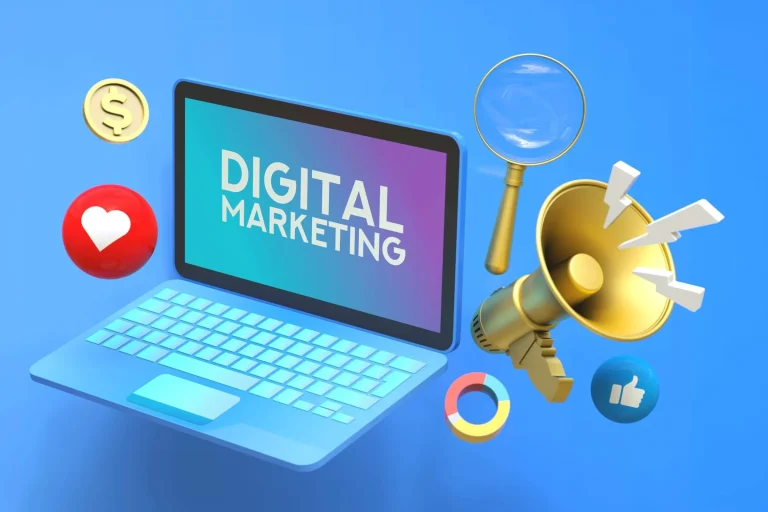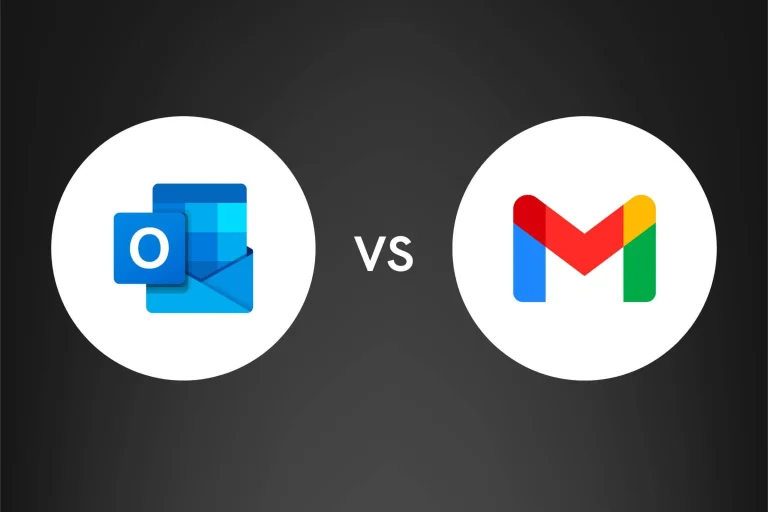Are you looking for a way to get your website more visibility and traffic? It would help if you considered investing in Search Engine Optimisation (SEO). SEO is a powerful tool that can help your website become more visible to potential customers and improve its rankings on search engines. In this article, we will discuss the benefits of SEO and how it can help your website grow & succeed.
What is SEO?
SEO is a process that can be used to improve the visibility and ranking of a website in search engine results pages (SERPs). SEO can be used to improve the visibility of a website for organic (unpaid) search results.
SEO can help your website grow and succeed in many ways. For example, you can increase traffic coming to your site by improving your visibility in SERPs. This increased traffic can lead to more leads and conversions for your business. Additionally, SEO can help you achieve a better ROI from your marketing campaigns by ensuring that your target audience sees your ads and takes action on them.
When done correctly, SEO can be a powerful tool to help your website grow and succeed.
Benefits of SEO
Improved Keyword Rankings
SEO is a great place to start if you’re looking to improve your website’s visibility and organic search rankings. Search engine optimisation is the process of optimising your website for Google’s search algorithm. You can dramatically improve your site’s ranking in Google’s search results by making small changes to your website’s content and structure.
One of the most important benefits of SEO is that it can help you improve your website’s keyword rankings. Keyword rankings measure your website’s ranking for specific keywords in Google’s search results. The higher your keyword ranking, the more likely people are to find your website when they search for that keyword.
Many factors influence keyword rankings, but the two most important are on-page SEO and off-page SEO. On-page SEO is optimising your website’s content and structure for Google’s search algorithm. This includes adding relevant keywords to your pages, optimising your title tags and meta descriptions, and improving your site’s overall user experience. Off-page SEO refers to the promotion of your website through link-building and social media engagement. In addition, you can improve your site’s keyword rankings by building high-quality links to your website and promoting your content on social media.
Increased Traffic
Traffic is the lifeblood of any website. Without it, your website will quickly become a ghost town. SEO can help increase traffic to your website in many ways.
First, SEO can help you rank higher in search engine results pages (SERPs). This means that when people search for keywords related to your business, your website is more likely to appear near the top of the results page. And since people are more likely to click on websites with higher results, this can lead to increased traffic levels.
Second, SEO can help improve your click-through rate (CTR). This is the percentage of people who click on your website link when they see it in the search results. A higher CTR means more traffic for you. Again, this is because people are likelier to click on links that appear higher in the results.
Third, SEO can help you generate more organic traffic. Organic traffic is the kind of traffic that comes from people searching for your business without clicking on an ad. This is the most valuable kind of traffic because it’s completely free and usually converts better than other types of traffic.
Higher Conversion Rates
If you’re able to draw more targeted traffic to your site, you’re more likely to see an increase in conversion rates. People who find your site through SEO are already interested in what you offer.
Supports Content Marketing
As anyone who has ever worked in marketing knows, content is king. Great content can help your website rank higher in search engine results pages (SERPs), attract more visitors, and convert those visitors into customers or leads. However, creating great content is only half the battle – you also need to ensure that your content is optimised for search engines if you want it to have a chance of ranking high in SERPs. This is where SEO comes in.
SEO supports content marketing by helping you ensure that your content is optimised for search engines. Optimising your content for relevant keywords and phrases makes you more likely to rank high in SERPs for those keywords, which will help more people find and read your content. In addition, well-optimised content is more likely to be shared by others on social media and other websites, which can help to increase its reach and visibility further.
In short, SEO is a vital tool for any website that relies on content marketing to drive traffic and conversions. Optimising your content for search engines makes it more visible and accessible to potential readers, which can ultimately lead to more traffic and conversions for your site.
More Customer Awareness
As the internet becomes increasingly saturated with content, making your website stand out can take time and effort. When your website appears higher in search results, it will also help improve your business’s brand awareness. Over time, this can lead to improved sales and overall growth for your company.
It’s no secret that SEO can help you rank higher in search engine results pages (SERPs), but did you know that it can also help increase brand awareness? A well-optimised website with relevant, keyword-rich content can attract attention from prospects and customers alike, helping to build your brand and solidify your reputation as a thought leader in your industry.
When your website appears high in the search results for relevant keywords, it helps build trust with potential customers. They see that you’re a reputable business that knows what it’s doing, and they’re more likely to engage with the customers.
Cost Savings
SEO can help your website grow and succeed for many reasons, but one of the most important is that it can help you save money.
Organic search traffic is free. You don’t have to pay for it as you do with paid search ads. And once you’ve achieved good rankings, it becomes relatively easy to maintain those positions, provided you continue to produce quality content and optimise your site regularly.
On the other hand, if you don’t invest in SEO and your competitors do, they’ll eventually steal away your potential organic search traffic, leaving you with no choice but to pay for ads to reach your target market.
SEO can help you avoid future costs by ensuring that your website is visible in organic search results. And as we all know, prevention is always better (and cheaper) than cure.
Types of SEO Strategies
Many types of SEO strategies can be used to help improve the visibility and ranking of a website. Some common strategies include on-page optimisation, off-page optimisation, link building, and social media marketing.
On-page optimisation is the process of optimising individual web pages to rank higher in search engine results. This includes optimising title tags, meta descriptions, header tags, and content.
Off-page optimisation is promoting a website on other websites and online platforms. This can be done through link building, which is getting other websites to link to your website. Social media marketing is also a form of off-page optimisation.
Link building is getting other websites to link to your website. This can be done by creating high-quality content that other website owners will want to link to or by reaching out to other website owners and asking them to link to your website.
Social media marketing is the process of using social media platforms like Facebook, Twitter, and LinkedIn to promote your website and its content. This can be done by sharing links to your website’s articles and blog posts or running ads with links to your website.
On-Site Optimisation
Regarding on-site optimisation, there are a few key things you can do to help your website succeed. First, make sure your website is well-organised and easy to navigate. This will help search engines index your site more easily and help users find the information they’re looking for more quickly and easily.
Second, use keyword-rich titles and descriptions to help improve your site’s visibility in search results. Finally, include relevant keywords in your content so that your site can be found by those searching for what you have to offer.
Lastly, keep your website updated with fresh, quality content regularly. This will keep people coming back for more and help attract new visitors who may have yet to find your site. By regularly adding new and relevant content, you’ll give yourself the best chance for success in the ever-changing world of search engine optimisation.
Off-Site Optimization
Off-site optimisation is the process of optimising your website for search engines by building links to your website from other websites. This is done by submitting your website to directories, writing articles and blog posts that link to your website, and posting on forums and blogs. The more links you have pointing to your website, the higher your website will rank in the search engine results pages (SERPs).
Off-site optimisation is time-consuming, but it is well worth the effort. Not only will it help your website rank better in the SERPs, but it will also drive traffic to your website from other sources. This can lead to more customers and sales for your business.
How to Add SEO to Your Website
If you’re running a website, it’s important to ensure you’re doing everything possible to optimise it for search engines. That’s where SEO comes in. Search Engine Optimisation is the process of making sure your website is as visible and easy to find as possible when people search for keywords related to your business or website.
There are many ways to add SEO to your website. First, make sure you’re using the right keywords throughout your site. Consider what terms people might use to search for your site, and include those keywords in your content. Use keyword research tools like Google AdWords Keyword Planner to find which keywords are most popular and most likely to bring traffic to your site.
Once you’ve identified the right keywords, use them throughout your site, including in the title, tags, and descriptions of your pages. You should also use them in the alt text of images on your site and in any blog posts or articles you write. In addition, create backlinks by including links to your website on other websites and social media platforms. The more places people can find your site, the more traffic you’re likely to get.
SEO can be a complex topic, but following these simple tips will help ensure that your website is as visible as possible online. By optimising your site for search engines, you’ll be able to attract more visitors and grow your business.
Common Mistakes to Avoid with SEO
Many common mistakes can be made regarding SEO, which can ultimately hurt your website’s chances of ranking well in search engines. Here are some of the most common mistakes to avoid:
1. Not Optimising Your Website for Search Engines
One of the biggest mistakes you can make is not optimising your website for search engines. This means ensuring your website is structured so that search engines can easily understand and index it. However, if your website is not optimised, it will be very difficult for it to rank well in search results.
2. Not Researching Keywords Properly
Another common mistake is researching keywords properly before using them on your website. Choosing keywords that are relevant to your content and have a high search volume is important. Otherwise, you could use keywords that nobody is actually searching for, which won’t do you any good.
3. Overstuffing Your Pages with Keywords
A third mistake often made is overstuffing pages with keywords in an attempt to inflate their ranking artificially. However, this tactic needs to be updated and can result in penalties from Google. Instead of stuffing keywords, focus on creating quality content that naturally uses relevant keywords.
4. Ignoring On-Page SEO Factors
Many on-page SEO factors, such as title tags, meta descriptions, and header tags, can affect your ranking. However, ignoring these elements will make it much harder for your pages to rank well in search results.
5. Not Including Internal Links
Internal links are also important for SEO, as they help search engines understand the structure of your website and how content is related to each other. Unfortunately, not including internal links makes it more difficult for search engines to crawl and index your site properly.
SEO VS PPC
SEO and PPC are two digital marketing strategies that can be used to help your website grow and succeed. SEO and PPC can help you achieve your business goals, but each has advantages and disadvantages.
SEO is a long-term strategy that can help you organically grow your website traffic over time. It takes time and effort to improve your SEO, but it can be a very effective way to grow your website in the long run.
PPC is a shorter-term strategy that can quickly increase your website traffic in the short term. You will need to pay for each click on your ad, but you can see results much faster than with SEO.
The right strategy will depend on your business goals and budget. If you have the time and resources to invest in SEO, it can be a great way to grow your website traffic slowly but steadily. If you need results more quickly or have a limited budget, PPC might be your better option.
Conclusion
SEO is a powerful tool that can help your website grow and succeed, but only if it’s used correctly. Investing in SEO services or learning the basics of how to increase organic search rankings will go a long way toward improving your visibility online and driving more traffic to your website. With the right strategies and techniques, you can see real and lasting results from SEO efforts that will benefit you for years.
















